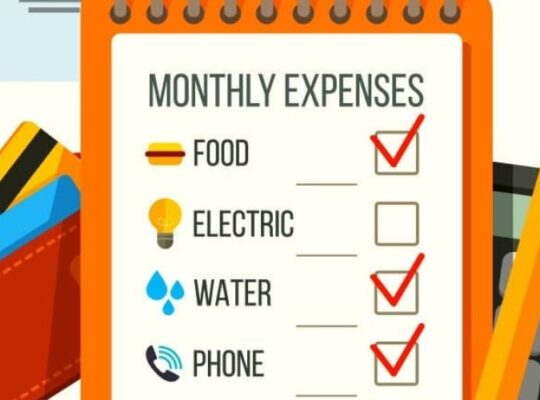
Breaking down savings goals into smaller pieces is a very powerful saving strategy for any type of planned expenses.
- How do I lower my expenses?
- Why and how should I save money?
- Planned and unplanned expenses
- Emergency Fund: What It Is and Why It Matters
- I am ready to save. What is the next step?
What are planned expenses?
Planned expenses are any type of expenses that are predictable and occur on a repeating basis. They can be as frequent as daily, like buying lunch, or yearly, like car registration. Because you know that these expenses are coming, you can prepare for them in advance, and make their impact on your pocket much less noticeable.
For example, let’s take the November-December holiday season. Financially, this is one of the most stressful times for most people, as they tend to spend more than at any other time of the year. Luckily, that stress can be greatly lowered by following these tips:
- Figure out what you need to save for: Whether it’s a vacation, a new car, or a college education, set a goal so you know how much you need to save. In this example, let’s plan on saving for holiday shopping.
- Set an amount and a time frame for your goal: Let’s say the holiday season just ended and you have 11 months left before you need to start shopping for gifts again. This year you spent about $550 on gifts for your immediate family. This means you need to start saving $50 each month, or roughly $11 per week.
- Put your money in a separate account: This will help you avoid spending it on other things. There is no limit on how many accounts you can have, so consider having an account for each planned expense. This helps you keep an eye on each account separately, and will give you a better idea how close you are to reaching your goal.
- Make saving automatic: Consider setting up an automatic transfer from your checking account to your savings account each month or week. It is least noticeable if you schedule it on the same day you are getting paid. This way, you won’t have to remember to transfer the money yourself.
- Adjust your budget, if needed: If you’re having trouble saving enough each month, take a look at your budget and see where you can cut expenses. For example, if you go out to eat twice a week, you could reduce that to once a week and put the extra money into your savings account.
- Be patient: Saving for a big expense can take time, but it’s worth it in the end. Stay focused on your goal and resist the temptation to dip into your savings for other things.







